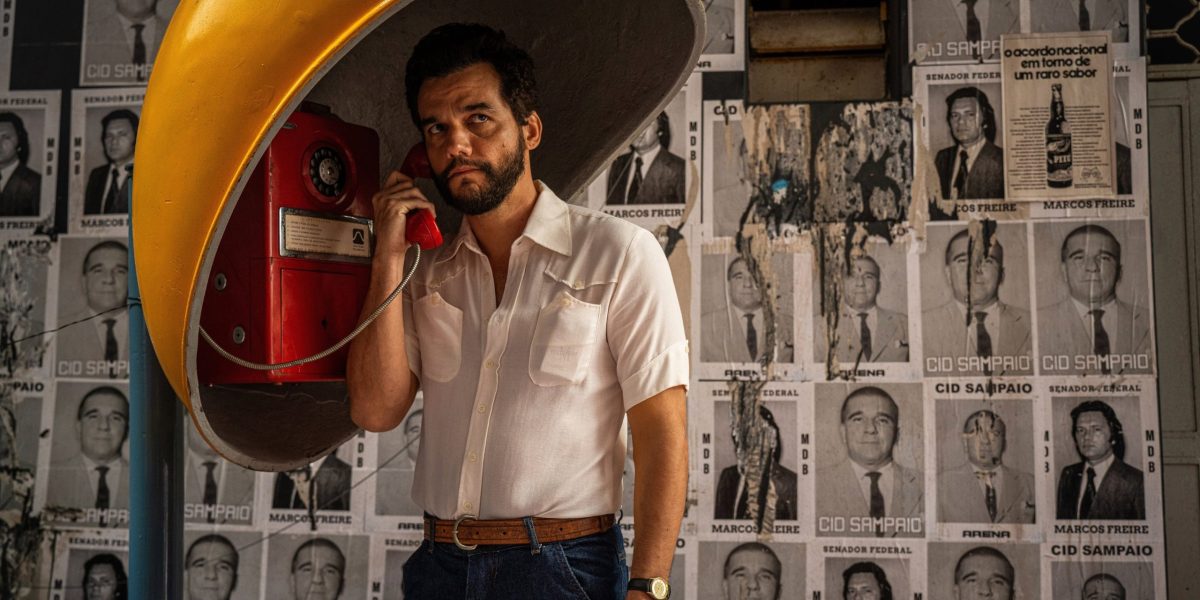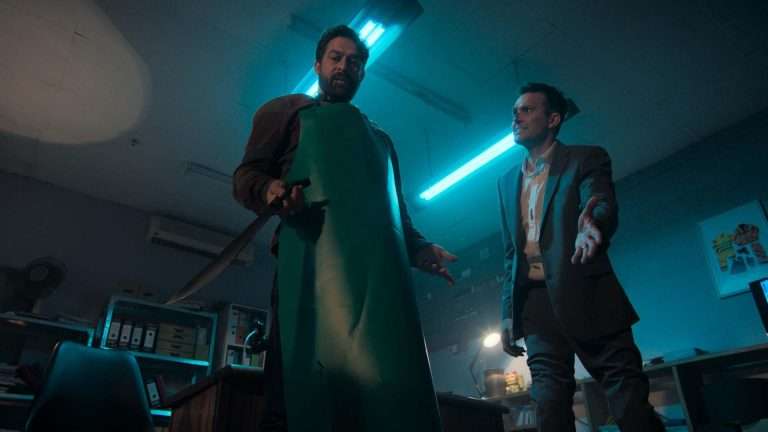Those unacquainted with Kleber Mendonça Filho’s particular tonal register may find themselves bewildered that a film titled “The Secret Agent” (O Agente Secreto, 2025) may be anything other than a conventional, tightly wound political thriller. Those of us familiar with his languid, context-dependent Brazilian works, meanwhile, can only be left to smirk at just how far the critic-turned-filmmaker is willing to take his alienating tactics in service of a greater framework that yields, up to now, his most challenging and rewarding results yet.
As the Brazilian public continues to reckon with the reverberating traumas of a military dictatorship (supported by the United States, for the record) that lasted a grueling 21 years, the nation’s cinema continues to reflect the passion of a people whose widespread pride in their endurance has only proven more and more poignant in a global landscape so willing to backslide into conservative chaos. “The Secret Agent,” on that front, proves a potent examination of just how unassuming—and, consequently, life-threatening—the scales of power can be for those who find themselves opposing repression in even the most modest of ways.
“The Secret Agent” begins as Marcelo (Wagner Moura, finally returning to his Brazilian roots after a hefty detour in American cinema and TV) pulls into a gas station on his way to his childhood hometown of Recife in Northern Brazil. A dead body lies a few feet away, covered lazily with a piece of cardboard. The station attendant is not allowed to move the body, but the cops haven’t shown up in the days since the death was called in. When they finally arrive, all they can be bothered to do is check on Marcelo to see if his papers are legit.
Right away, we’re under the impression that this man—our titular “Secret Agent”—is working on some covert, subversive assignment, but as Mendonça’s structure begins to unravel, Marcelo’s past dealings prove far more civilian in nature than one might initially anticipate. Still, this doesn’t stop a pair of hitmen from being dispatched to find him, just as Marcelo begins to reconnect with his origins, seeking out proof of his mother’s existence and making every possible effort to care for his young, estranged son under the shadows of military oppression.

For Mendonça, genre decompression is the name of the game, as “The Secret Agent” leverages the expectations of its generic-as-all-hell title to unveil the circumstances behind its designation as being entirely contingent on the historical suppression of Brazil’s historical tyranny. The longer we spend with Moura’s titular “spy” and unravel the details of his secretive undertakings, the more we come to learn that the man has simply become a victim of regionally classist repression under the thumb of a regime looking to snuff out the first line of defence against such forces: an educated public.
For his part, Mendonça (who, for his efforts, picked up Cannes’s Best Director prize) leverages his own education as a student of the art to inject “The Secret Agent” with more than a fair share of beloved stylistic techniques—I count at least two split diopters!—all culminating in a finale that begins to resemble a more traditional nail-biter while, in the end, still managing to subvert those expectations he creates. It all comes to a head with a poignant final note that once more brings his Recife roots and love of cinema to the forefront. In that way, the film is a much more natural progression from “Pictures of Ghosts” than you might expect.
Anchoring this tricky balance of genre and tone is Moura (who, for his own efforts, scooped up Cannes’s Best Actor prize), bringing a great sense of urgency and humility to a role largely unanticipated by those more familiar with the man who played Pablo Escobar and a wolf-shaped rendition of Death. A man whose frustration with the system that has forsaken him and his higher institutions never blinds him to the very real fear of what his exile might lead to as far as his own personal safety is concerned. Marcelo’s trepidatious anger is balanced beautifully by Moura’s bottled fiery stance, communicated with a haunting sadness beneath his tired but determined eyes.
“The Secret Agent” does take quite a while to get into gear—in typical Mendonça fashion, the chosen runtime is questionable, particularly this time at a dauntingly somnolent 160 minutes—but once the pieces come together, man, does he stick the landing. Like most of Brazil’s successful reckonings with the nation’s troubled past, Kleber Mendonça Filho’s examination of local military rule is just as dependent on the background we only get in bits and pieces, between the character portraits we get in full.








![Nadie sabrá nunca (No One Will Ever Know) Netflix [2019] Review – Turning to a Fictional World](https://79468c92.delivery.rocketcdn.me/wp-content/uploads/2019/08/Nadie-sabrá-nunca-No-One-Will-Ever-Know-768x384.jpg)